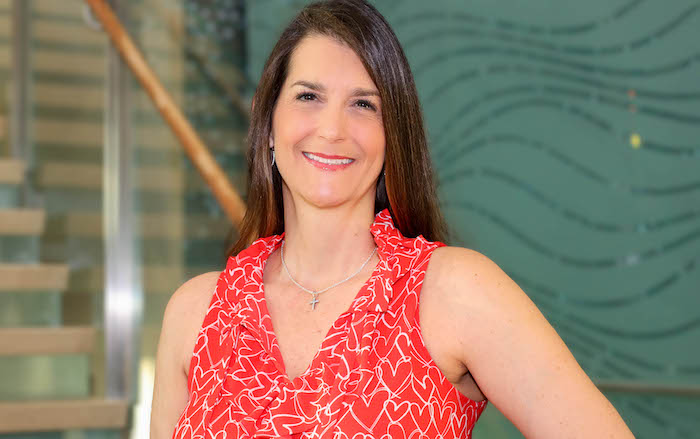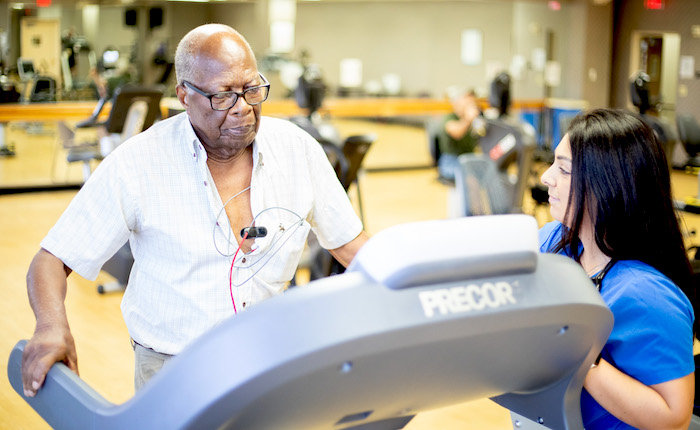Health First Clinical Nutrition Specialist: Intermittent Fasting for Health? It’s Not One-Size-Fits-All
By Space Coast Daily // September 5, 2025
Jennifer Mazarredo offers tips on how to lose weight through intermittent fasting

Despite its popularity, intermittent fasting may not be safe—or sustainable—for everyone. A clinical nutrition specialist weighs in.
BREVARD COUNTY, FLORIDA — If a client comes to Jennifer Mazarredo for tips on how to lose weight through intermittent fasting, she’s ready to dole out some blunt advice.
“If you’re a healthy 20- to 30-year-old who doesn’t have any conditions, and you want to try it out, it’s probably going to be okay,” said Mazarredo, RD, LDN, CNSC, a Clinical Nutrition Specialist for Health First.
It’s people who are older and those with pre-existing conditions that make her wary of the diet trend, as well as those on medications.
“I’m not saying it’s wrong,” Mazarredo said. “I’m just saying there’s a very select age group and type of person that I would say, ‘You know what? I think it’d be okay if you did that.’ ”
With 10% of Americans ages 18 to 80 tapping into the diet trend, it’s simple to adopt, according to research by Vitality Pro. It’s not so much about what you eat, but when. Plenty of celebrities speak openly about using intermittent fasting (IF) for weight management.
But if you go to an expert who specializes in nutrition, don’t be expecting a green light.
“From a nutrition standpoint, intermittent fasting isn’t something we typically recommend — especially for people with underlying conditions,” Mazarredo said.
While intermittent fasting continues to surge in popularity, a recent study showed “the risk of dying from cardiovascular disease was sharply higher,” the BBC reported. A large-scale study looked at 19,000 adults and revealed that people who restricted their eating to less than eight hours a day saw their risk of dying from cardiovascular disease increase by 135%, compared with dieters who expanded their food intake window to 12 to 14 hours, the research published in Science Direct showed.
While health benefits – improved blood pressure, lowered cholesterol levels, glucose tolerance, better sleep, reduced inflammation, and better brain health – have been purported, there are other factors to consider. And they’re something to be carefully weighed for anyone thinking about trying out IF.

How does intermittent fasting work?
IF has a variety of formats, including alternate-day fasting (known as the 5:2 method) and time-restricted eating.
“Time-restricted fasting is probably the most common,” Mazarredo said. “But you’re still limiting what you eat, so you’re probably not getting all the nutrients you need.”
Mazarredo expressed concern over the recent study that tied higher cardiovascular risks to 91% of participants who were participating in IF.
In addition, another recent study by the University of British Columbia-Okanagan suggested that IF affects different body types – endomorph, mesomorph, and ectomorph – in different ways.
Studies aside, Mazarredo is hesitant to recommend the diet to any client who came to her.
“No. 1, I’d be happy that they came to see the dietician,” Mazarredo said. “That’s a great start, because that’s not a quick fix. And I would recommend that they do something that they can do every day, and they can sustain it for the rest of their life.”
IF can be ‘overwhelming’
When a client comes to Mazarredo, she reviews what they’re doing and their daily calorie level. Then, she suggests thinking about what you can change – with baby steps. One goal at a time is what she suggests.
“The point is not to overwhelm someone,” Mazarredo said. “And to me, intermittent fasting, to me, is overwhelming.”
If someone really loves food and eating, restricting them to a small portion of eating time “is going to be hard for somebody to sustain,” Mazarredo said. She recommends a healthy diet – low fat, moderate protein, moderate carbs, and some splurges on the side. The key is ensuring the “diet” is more of a way of life that’s sustainable in the long run, she said.
Additionally, some people should automatically be out when it comes to IF – teenagers, endurance athletes, older adults, and those with some pre-existing conditions. Medications are important to consider.
“If you have somebody who has to take their medicine with food, and they need to take it in the morning and they don’t, they might get nauseous, they might get sick, or you might have to take your insulin,” Mazarredo used as examples.
Older adults tend to not eat as much, with appetites going down and people eating once or twice a day to begin with.
“We already struggle with older adults getting enough to eat,” Mazarredo said. “They’re already not getting what they need.
She also warned that IF can be a slippery slope for some, leading to nutrient deficiencies and, sometimes, disordered eating. A person with a history of anorexia or bulimia might find the IF lifestyle “can feed into that.”

In addition, it can lead some to disconnect from others – perhaps turning down dinner invitations out of fear of it interfering with their eating plan.
The most important thing to remember is choosing a diet or lifestyle that provides the nutrients a body needs.
“When you start restricting, you restrict nutrients,” Mazarredo explained. “Women especially risk lacking vitamin D and calcium.”
Intermittent fasters also run the risk of a low-calorie diet messing with a person’s metabolism.
“Your body doesn’t know how to adjust, and it lowers your metabolism,” she said.
Exercise is the best way to burn more calories, even though most people don’t want to hear that, she added.
Before starting an IF, Mazarredo said people should be up to date on bloodwork and regular doctor visits to ensure there aren’t any of these issues. However, she noted that the trend isn’t “a big thing in Brevard County.”
“I think people just tend to be a little more carefree here,” Mazarredo surmised. “They just want to enjoy themselves, eat and drink.”
At the end of the day, losing and maintaining weight is really about a healthy eating lifestyle.
“Ninety percent of the time, do the best you can,” Mazarredo recommended. “Then save the other 10% for your splurges. It’s not all-or-nothing.”
For recipes and more information on healthy eating, visit hf.org and search for “dietician” or call 321.434.6100.












